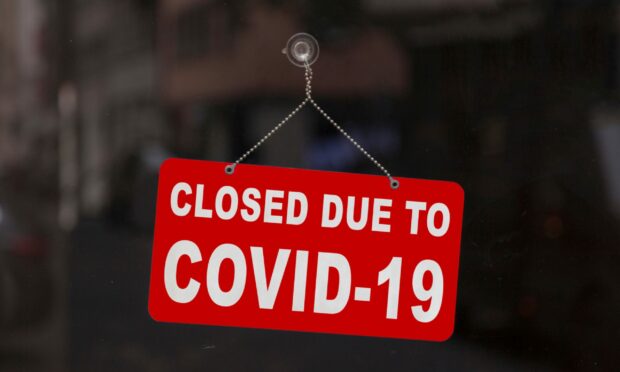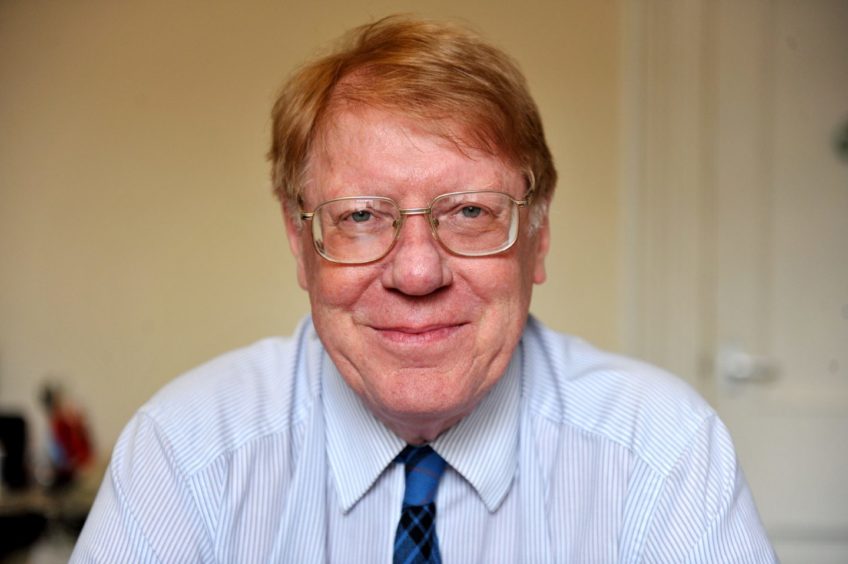A north economist has voiced concerns over the ability of companies in the area to repay money given to them from government-backed coronavirus loan schemes.
Tony Mackay said he expected a number of businesses that had received loans not to survive, with those operating in the tourism and hospitality sector most at risk.
But, he added the funding had been “very helpful” in aiding an economic recovery, which he believes is now “clearly under way” in the Highlands and Islands.
More than £400million was paid out to 10,881 firms in the region from the Bounce Back and Coronavirus Business Interruption (CBILS) loan schemes, according to final figures from the UK Government-owned British Business Bank.
In Aberdeen and Aberdeenshire, 7,894 companies received funds totalling £350.7m
Inverness-based Mr Mackay said: “I am surprised at the large number of loans to businesses in the region, which are more than those in Aberdeen and Aberdeenshire. The average Highlands and Islands loan is about £37,000.
It is obvious that the loan schemes have been very beneficial for local businesses. However, there must be some concern about the ability of some of them to repay the loans, particularly in the tourism and hospitality sector.”
He continued: “There is the added complication of the rundown in the furlough assistance scheme.
“An economic recovery is clearly under way in the Highlands and Islands, although there are doubts over its timing. The business loans have undoubtedly been very helpful in that recovery.
“Unfortunately, I expect that some of the local businesses assisted will not survive.”
In the Highlands and Islands, the bank paid out Bounce Back loans totalling more than £274m to 10,223 companies and £126m under the CBILS scheme to 658 firms.
In Aberdeen and the north-east, 7,350 companies received a total of £217.7m Bounce Back funding and the CBILS total was £133m, across 544 businesses.
In Scotland as a whole, more than £4billion was given to 99,900 firms from the schemes, which closed to new applications at the end of March.
Loans gave firms ‘breathing space’
Launched in April last year, the Bounce Back scheme gave small businesses a six-year term loan from £2,000 up to 25% of their turnover, with a limit of £50,000. CBILS provided business loans, overdrafts, and invoice and asset finance of up to £5m to businesses with revenues under £45m.
Mark Sterritt, UK network director, Scotland at the British Business Bank said: “The Covid-19 loan schemes have been an important part of the government’s response to the pandemic, providing businesses with much-needed breathing space and reducing cash-flow concerns for many.
We’re pleased to see evidence that they have helped smaller businesses right across Scotland and look forward to helping more businesses to prosper and grow as we look towards economic recovery.”
Earlier this month the Federation of Small Businesses (FSB) said a quarter of firms in the Highlands and Islands tourism sector questioned in a survey were pessimistic about surviving until 2022.
The research found that the eagerly anticipated post-lockdown staycation boom did not start as soon as travel restrictions were lifted, leaving many businesses struggling to generate sales and profits.

